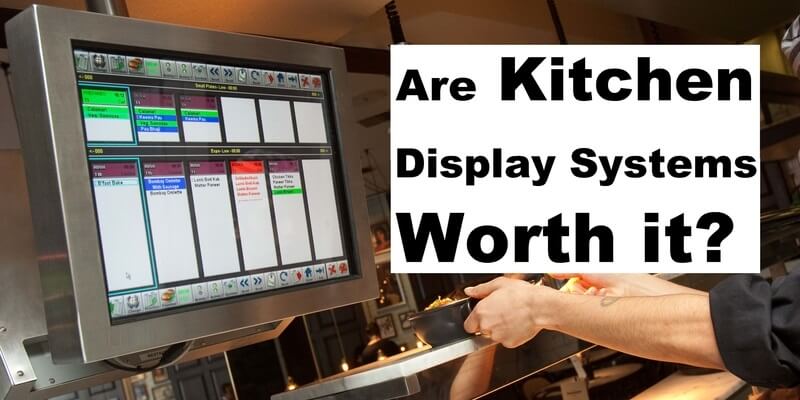
The dream of every restaurant owner, chef and manager is to have a successful kitchen, and by successful we mean profitable. After all, serving delicious meals to amazing customers won’t last long if the kitchen is not running like a well-oiled engine. This, perhaps, is the reason most restaurants fail within the first 3 years according to recent studies. This forces kitchens to constantly look for new and creative ideas, like kitchen display systems, to increase revenue, protect profitability, and offer customers the experience they expect in return for their loyalty.
Over the last two years technology designed for kitchens has helped hundreds of kitchens and thousands of individuals measure and manage food waste and therefore increase their food gross margins by 2-6 percent. Still, many restaurant owners don’t seem to realize that 30% of their business lies in their kitchen.
What are Kitchen Display Systems?
One of the most effective implementations of technology in a commercial kitchen is the Kitchen Display System or KDS for short. Digital display systems are helping businesses fine-tune their kitchen staff and protocols to protect their profits. They reduce wastes, improve overall experience and raise profitability at the same time.
The way a KDS achieves this is by tracking ticket times, so you can improve turnaround times. It also color-codes the orders to help staff see what’s cooking and what’s ready to go. For staff managers, this allows them to focus on incoming orders more effectively. All in all, a KDS can help minimize the day to day pressure of keeping track of all information needed to run a busy kitchen. It can save time, energy and labor while resulting in improved profitability.
We have interviewed experts on kitchen display systems for businesses ranging from large commercial kitchens to small restaurants, and they all had similar advice. The most important areas, according to experts, are integration/compatibility, price, ease of use, and reporting features.
Integrations and Compatibility
Make sure your point-of-sale system or restaurant operating system can connect with the KDS you’re considering before you purchase. Read reviews and talk to users online to learn about any possible issues with compatibility.
Price
Verify how much each system costs, including hardware pricing or hidden fees, monthly software fees, and any installation fees or necessary accessories. Most providers can offer a price quote over the phone or by email.
Ease of Use
KDS touchscreens are meant to be intuitive and easy to read, but not all are created equal. Closely compare how easy each system and interface are to use. Consult with your kitchen staff so they are able to offer you their feedback as well. If possible, take advantage of free trials. Allowing your staff to try the new system is an excellent way to land on the right choice.
Insights and Reporting
Look at the reports you can pull and how easy it is to break them down. A KDS system can provide data on things like order fulfillment times and order accuracy. Many systems can also display order changes in real-time, without having to waste time, food, or receipt paper.
Do you want to know more about how a Kitchen Display system can help your business become more profitable? Request a free demo with a restaurant technology expert today.